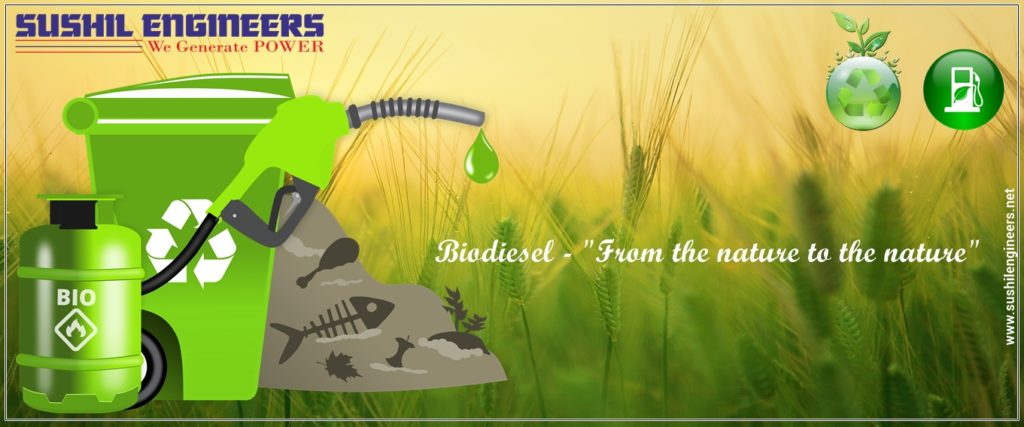
Bio-Diesel
What is Biodiesel?
Biodiesel is a renewable fuel made using natural vegetable oils and fats most commonly from Karanja, Jatropha, Pongamiya, Palm oil etc. Made through a chemical process converting oil and fatty acids to fuel. As the name suggests it is biodegradable and has non toxic properties. It can be produced from any fat or vegetable oil, including waste cooking oil. Production of Biodiesel is done by three basic methods:
- Catalyzed base transesterification of the oil.
- Direct Acid catalyzed transesterification of the oil.
- Conversion of oil to fatty acids and then to biodiesel.
The transesterification process is the reaction of triglyceride with an alcohol to form esters and glycerol. The products of reaction are Biodiesel and glycerol.
Use of Biodiesel:
Biodiesel is an alternate to Diesel which can be used to replace the diesel. As compared to petroleum diesel the biodiesel produces less particulate matter, carbon monoxide, unburned hydrocarbons and Sulphur dioxide. It increases the lubricity and emissions are 50% less than conventional diesel fuel. Generally, no expensive modifications are needed in the engine to switch to this fuel. Biodiesel is generally blended with petroleum-based fuel.
Biodiesel Standard:
In India, Bureau of Indian Standards has come up with Bio-diesel standard as BIS 15607.
Storage:
The standard storage and handling procedures used for petroleum diesel can be used for Biodiesel. It should be kept in clean, dry and dark environment. Storage tank material includes Aluminum, Steel, fluorinated polythene, fluorinated polypropylene and Teflon. However, Copper, Brass, Lead, Tin and Zinc should be avoided.
Properly blended Biodiesel is expected to have a shelf life of six months, depending upon the storage conditions. Fuel should be monitored regularly and if degradation occurs necessary steps should be taken to avoid the use of degraded fuel. Extended storage may result in microbial contamination of fuel. It can plug dispensers and fuel filters and cause engines to stall.
Switching to Biodiesel:
Before you pump the first liter of Biodiesel blend (B5) into your tank, you need to install a new fuel filter. The first two fuel filter changes will have to be performed at half the standard interval; after that one can return to the normal change interval. Biodiesel should not be stored for long and must be used with 6 months even the equipment should not be stored with biodiesel more than 3 months with the biodiesel blends.
Cummins Approved Biodiesel Blends:
B5 is the fuel with 5% biodiesel and 95% petroleum-based diesel. Blends up to B5 are fully compatible with Cummins engines in India. B5- Any Cummins diesel engine can be run safely with B5 biodiesel blend.
A word of Caution:
If the biodiesel blend is not uniform or contains more than 5% Biodiesel, it may impact durability of fuel system components.
